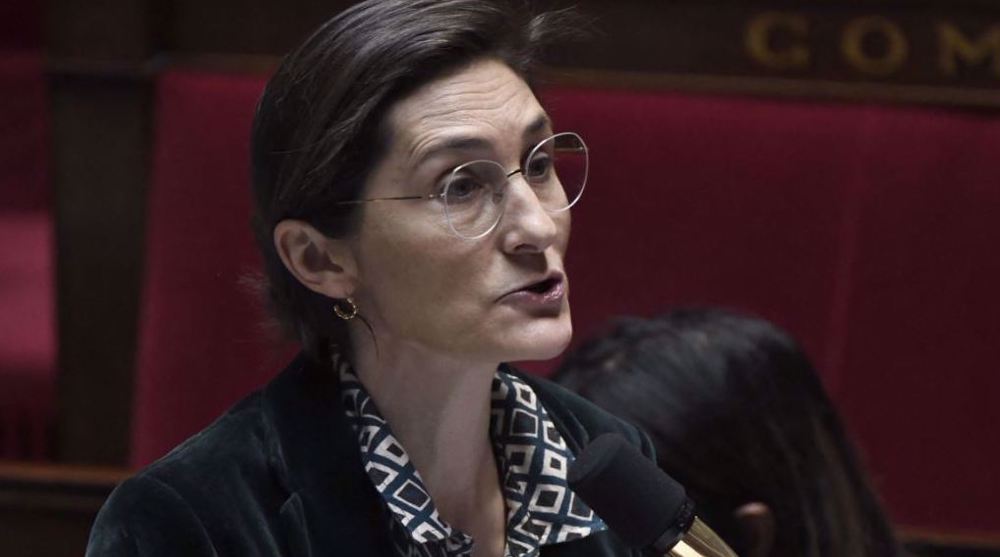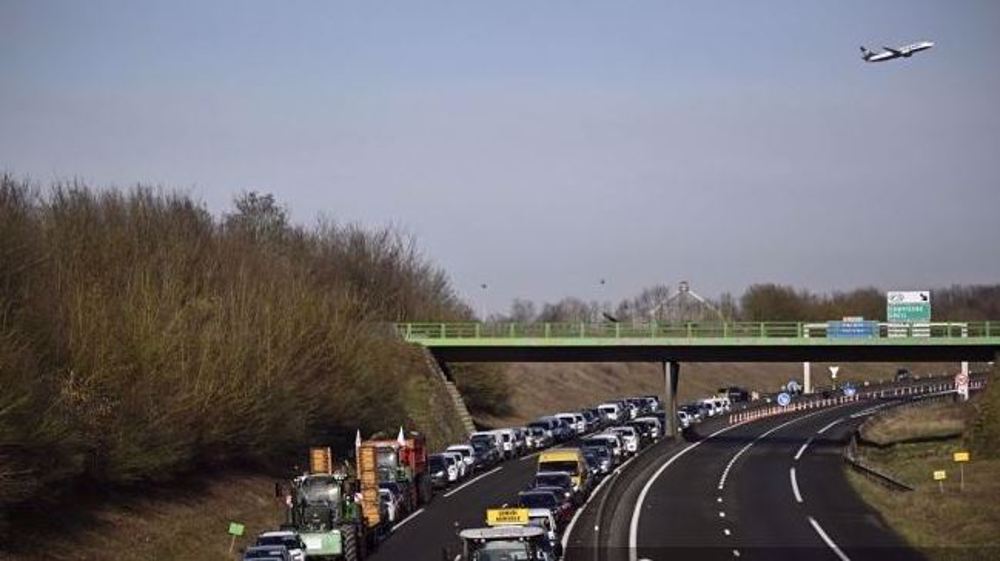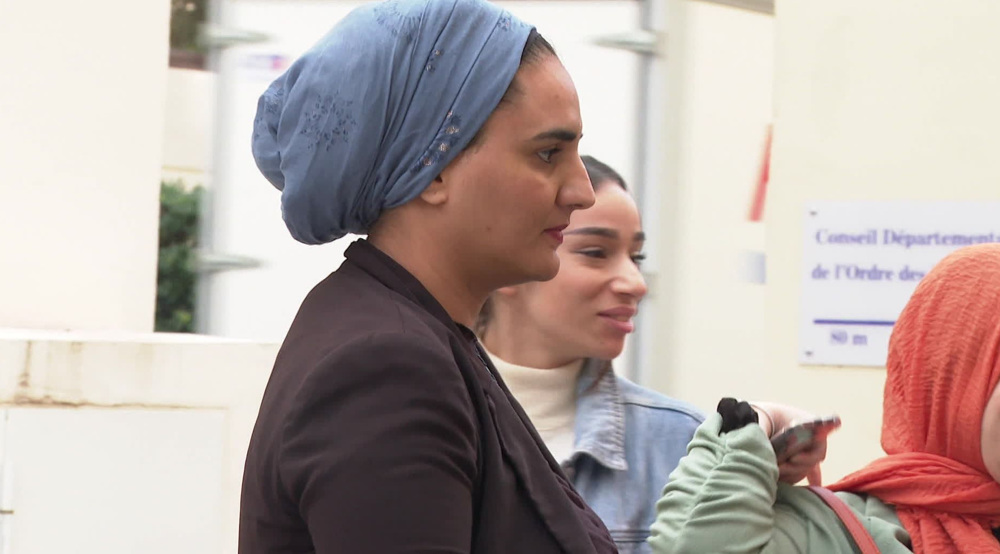French teachers strike, mounting pressure on Macron's government
French teachers have staged a strike to pressure the government into meeting their demands over pay and labor conditions.
Teachers were striking across France on Thursday, calling on the embattled education minister, who has been embroiled in a series of controversies, to give them a pay raise to meet the soaring inflation.
The teachers' strike is "a warning to the government" about teachers' "daily life, their suffering at work and the lack of recognition, especially in their pay," said primary school teachers' union -- the Syndicat national unitaire des instituteurs, professeurs des écoles et PEGC (FSU-Snuipp).
The syndicate threatened that "hundreds of schools will be closed" if the teachers' demands were not met, adding that, "the situation has been inflamed by the nomination of a part-time minister who has forfeited her credibility".
In Paris, the protesters marched to the education ministry after gathering at 2:00 pm (1300 GMT).
Similar protests were scheduled in major cities nationwide, including Marseille, Rennes and Nantes.
Amelie Oudea-Castera, France's education and sports minister has been the center of controversy over sending her children to an elite private school and excessive pay in a past job, as she prepares for the Paris Olympics.
The former junior tennis champ was handed the education brief on top of her sports portfolio in a cabinet reshuffle earlier this month after the former education minister, Gabriel Attal, was promoted to prime minister.
The teachers' strike, which coincides with the ongoing French farmers' protests, was planned when Oudea-Castera became the new education minister.
"I have mixed feelings, always anger, for a long time, but also exasperation and incomprehension," said Benjamin Marol, a middle school history-geography teacher from Montreuil.
Marol said the government proposes making superficial changes like imposing school uniforms and dividing classes by ability.
He said, instead, the government should be taking charge of tackling the fundamental problems related to the education system.
Anne, a school teacher from Nice, who did not give her surname, said she saw the teachers’ protests and strike as the only means "to express my profound disagreement with... what the minister said about public schools."

Oudea-Castera claimed her son had to waste "loads of hours with no proper replacement" teacher at his state primary school.
"I feel wounded and humiliated by a minister who is completely out of touch [with reality]," Anne added.
Elisabeth Allain-Moreno, secretary-general of teachers' union SE-Unsa, also said changing the minister alone will not do anything to solve the teachers’ grievances, saying teachers had returned from the New Year holidays to "yet another change of pilot and... the nomination of a minister who had a catastrophic start." Approximately 47 percent of middle and high school teachers had taken part in the walkout on Thursday, according to the Snes-FSU union. The FSU-Snuipp syndicate put the tally at around 40 percent in primary schools.
In the meantime, French labor unions continue to mount pressure in any possible way on the government of President Emmanuel Macron to raise workers’ salaries and improve conditions.
Convoys of farmers' tractors and trucks from around the country are edging closer to Paris, Lyon and other locations across France as thousands of protesting farmers have appeared to ignore warnings of police intervention if they cross red lines laid down by the government.
On Wednesday, farmers were arrested after they tried to enter Rungis, the largest wholesale market in the whole continent.
French police, who had explicit orders from Interior Minister Gerald Darmanin to secure Rungis, arrested at least 79 farmers.
The protesting farmers had managed to evade surveillance and enter the wholesale market on foot, where they damaged some stalls.
“You are fighting this battle because if we don’t fight, we die,” said Serge Bousquet-Cassagne, the head of the farmers association in the southwestern Lot-et-Garonne department, urging the protesters to carry on fighting.
Farmers across the European continent share the same grievances as the French producers of agricultural items.
Epstein provided New York apartment for ex-Israeli PM Barak: Report
BDS National Committee slams Human Rights Watch for anti-Palestinian bias
Norwegian ambassador resigns over expanding Epstein-linked scandal
Russia will not launch attack on Europe unless struck first: Lavrov
Israeli forces kill three Palestinians, including teen, in raids across Gaza
Israel finalizes execution plans for Palestinian abductees after Knesset vote: Report
VIDEO | Press TV's news headlines
VIDEO | Pakistan mosque attack in Islamabad sparks protests in Kashmir, Kargil










 This makes it easy to access the Press TV website
This makes it easy to access the Press TV website